Supplement-Drug Interaction Checker
Check if your supplements interact dangerously with prescription medications. Based on FDA warnings and clinical evidence from the article.
How This Works
Many natural supplements interact dangerously with prescription drugs. This tool shows you documented risks based on real cases like St. John's wort reducing birth control effectiveness or garlic increasing bleeding risk.
Select both medications and supplements to check for interactions.
People often assume that if something is labeled "natural," it must be safe. You see it on labels: "100% natural," "plant-based," "no chemicals." It sounds gentle, pure, even virtuous. But when you start mixing herbal supplements with prescription drugs, that assumption can turn dangerous-fast.
The Myth of "Natural = Safe"
The idea that nature is inherently safer than medicine is deeply rooted. It’s not just marketing-it’s psychology. Studies from the National Center for Complementary and Integrative Health show people trust natural products more, even when there’s no proof they work better. But here’s the truth: natural doesn’t mean safe. Take St. John’s wort. It’s sold as a natural remedy for mild depression. Sounds harmless, right? But it can cut the effectiveness of birth control pills, blood thinners like warfarin, and even some HIV and cancer drugs. People take it without telling their doctor. Then they wonder why their medication stopped working. Or consider kava. Used for anxiety, it’s been linked to severe liver damage. In some countries, it’s been pulled from shelves. Ephedra? Banned in the U.S. in 2004 after causing heart attacks and deaths. These aren’t rare outliers. They’re documented risks. Meanwhile, pharmaceuticals get a bad rap. Yes, opioids can be addictive. Statins can cause muscle pain. But these risks are known, studied, and tracked. Every drug approved by the FDA goes through years of clinical trials. Manufacturers must prove safety and effectiveness. They must report side effects. Facilities are inspected. Batch consistency is monitored. Natural products? Not so much.How Regulation Creates a Dangerous Gap
In the U.S., the Dietary Supplement Health and Education Act (DSHEA) of 1994 changed everything. Under this law, herbal supplements are classified as food-not medicine. That means they don’t need FDA approval before hitting shelves. No clinical trials. No proof of effectiveness. No safety testing required. Pharmaceutical companies spend an average of $2.6 billion and over a decade to bring one new drug to market. Supplement makers? They can launch a new herbal blend for under $100,000. No trials. No long-term data. Just a label that says "natural." The FDA only steps in after harm is done. In 2022, there were 120,000 reported adverse events from prescription drugs. For supplements? Only 1,200. But experts say that’s not because supplements are safer-it’s because people don’t report them. Why? Because they believe natural products don’t cause problems. A Consumer Reports survey found 68% of supplement users think the FDA tests these products before sale. That’s false. The FDA doesn’t approve supplements for safety or effectiveness. They only act if something is clearly dangerous or mislabeled.Real-World Interactions You Can’t Ignore
Here’s what actually happens when natural products mix with drugs:- St. John’s wort + antidepressants: Can trigger serotonin syndrome-a life-threatening condition with high fever, seizures, and irregular heartbeat.
- Ginkgo biloba + blood thinners: Increases bleeding risk during surgery or after injury. One study found it doubled bleeding time in patients on warfarin.
- Garlic supplements + anticoagulants: Can cause uncontrolled bleeding. Patients on aspirin or clopidogrel have been hospitalized after adding garlic pills.
- Green tea extract + liver medications: Linked to acute liver failure in rare cases. The FDA issued warnings after multiple hospitalizations.
- Calcium or iron supplements + antibiotics: Block absorption. If you take an antibiotic like ciprofloxacin with calcium, you might as well not take the antibiotic at all.
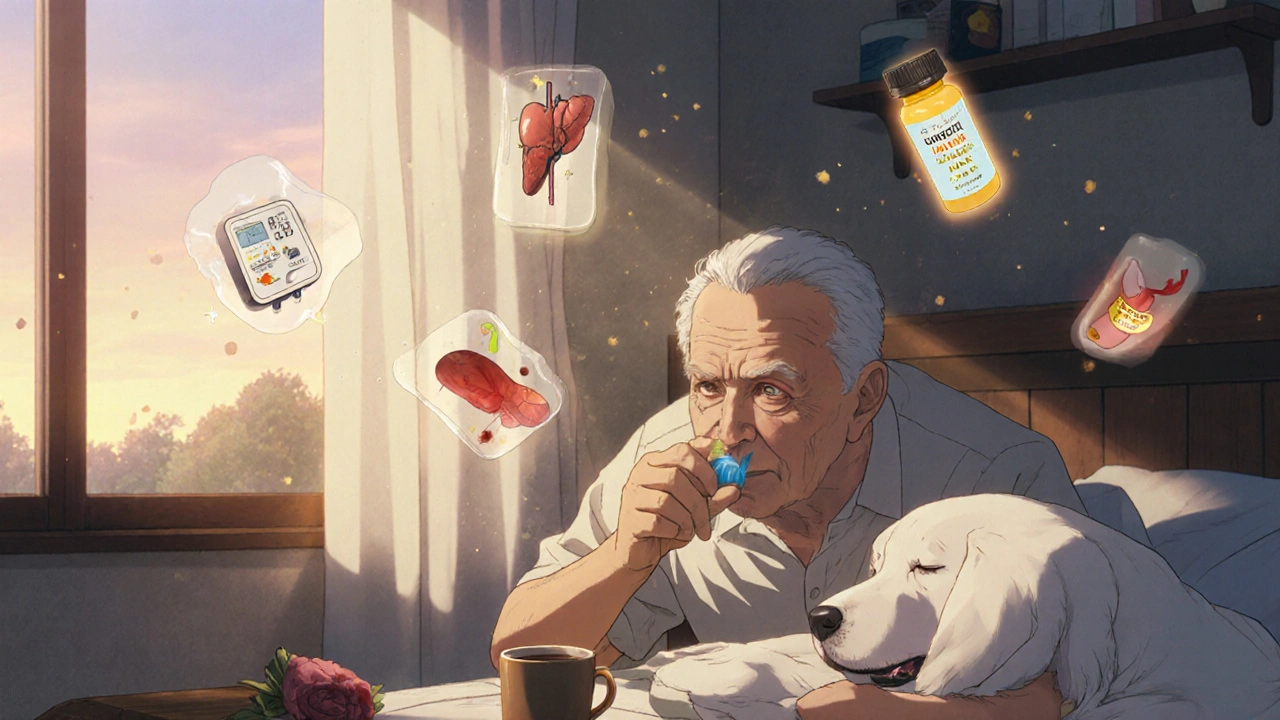
Why Doctors Don’t Know What You’re Taking
A 2022 study in JAMA Internal Medicine found that 70% of patients don’t tell their doctor about the supplements they use. Why? They think it’s not important. Or they’re afraid their doctor will judge them. Or they just forget. But here’s the problem: doctors don’t test for herbal interactions. Most don’t even know the full list of possible conflicts. A 2023 study showed that only 1 in 5 physicians felt confident advising patients on supplement safety. Meanwhile, supplement labels rarely list interaction warnings. Compare that to a prescription bottle: side effects, contraindications, drug interactions-all listed in clear print. A turmeric capsule? Often just says "take one daily." No mention that it can interact with diabetes meds, blood pressure drugs, or surgery.What You Can Do to Stay Safe
You don’t have to give up supplements. But you need to treat them like medicine-not candy.- Always tell your doctor. List every supplement, herb, vitamin, or tea you take-even if you think it’s harmless.
- Check for third-party verification. Look for the USP Verified Mark, NSF Certified, or ConsumerLab Approved. These mean the product was tested for purity and label accuracy. Only 15% of brands have this.
- Don’t assume "more is better". High doses of vitamin D, magnesium, or zinc can be toxic. The dose makes the poison.
- Stop supplements before surgery. Many herbs increase bleeding risk. Ask your surgeon what to pause and when.
- Use trusted sources. Go to the NIH Office of Dietary Supplements website. Not Amazon reviews. Not Instagram influencers. Not your cousin’s friend who "swears by it."

The Bigger Picture: Industry, Growth, and Change
The U.S. supplement industry is worth $50 billion. Sales have grown 12% a year since 2018. People want natural solutions. That’s not wrong. But the system isn’t built to protect them. The FDA issued only 35 warning letters to supplement makers in 2023, despite thousands of products being sold with unsafe ingredients-like hidden steroids, stimulants, or unapproved drugs. Some supplements have been found to contain lead, arsenic, or pesticides. There’s hope. The Dietary Supplement Listing Act of 2023 is now in Congress. It would require manufacturers to register products and list ingredients before sale. That’s a step forward. But until then, the burden is on you.Final Reality Check
Natural products aren’t inherently evil. Many life-saving drugs-like aspirin, morphine, and taxol-started as plant extracts. The problem isn’t nature. It’s the illusion that nature is safe without oversight. Pharmaceuticals have risks. But they’re measured, documented, and managed. Supplements have risks too-but they’re hidden, unreported, and often ignored. The truth isn’t about natural versus synthetic. It’s about awareness. Knowledge. Communication. If you’re taking a supplement, treat it like a drug. Ask questions. Check for interactions. Tell your doctor. Because when it comes to your health, the label doesn’t tell the whole story.Are herbal supplements safer than prescription drugs?
No-not by default. While prescription drugs have known side effects and are tightly regulated, herbal supplements often lack safety testing, proper labeling, and interaction warnings. Some herbs, like kava or ephedra, have caused serious harm. Others, like St. John’s wort, can dangerously interfere with medications. Safety depends on the product, dosage, and how it’s used-not whether it’s labeled "natural."
Can natural supplements cause liver damage?
Yes. Kava, green tea extract, black cohosh, and some weight-loss supplements have been linked to liver injury. In rare cases, they’ve caused acute liver failure requiring transplants. The FDA has issued multiple warnings over the years. These aren’t isolated incidents-they’re patterns seen across clinical reports.
Why don’t supplement labels list drug interactions?
Because the law doesn’t require it. Under DSHEA, supplements are treated like food, not drugs. Manufacturers aren’t obligated to prove safety or test for interactions before selling. Only prescription drugs must include detailed interaction warnings. That’s why you’ll see full lists on a pill bottle but nothing on a turmeric capsule.
Should I stop taking supplements before surgery?
Yes, many should be stopped at least a week before surgery. Herbs like garlic, ginkgo, ginseng, and ginger can increase bleeding risk. Others, like valerian or kava, may interfere with anesthesia. Always tell your surgeon what you take-even if you think it’s "just a vitamin."
How do I know if a supplement is reliable?
Look for third-party verification labels: USP Verified, NSF Certified, or ConsumerLab Approved. These mean the product was independently tested for ingredients, purity, and label accuracy. Only about 15% of major brands carry these seals. Avoid products with vague claims like "all-natural" or "pure"-those terms have no legal meaning.
Why do people think natural products are safer?
It’s a psychological bias. People associate "natural" with purity, safety, and wellness. Marketing reinforces this. But nature includes deadly plants like foxglove and poison ivy. Many pharmaceuticals were originally derived from plants-like morphine from poppies or aspirin from willow bark. The difference is science: pharmaceuticals are purified, dosed, and tested. Supplements often aren’t.
Can I trust Amazon reviews for supplements?
No. Amazon reviews reflect personal opinions, not safety or effectiveness. Many are written by people who don’t understand interactions or side effects. Some are fake. Always check scientific sources like the NIH Office of Dietary Supplements or peer-reviewed studies instead. What one person calls "miraculous," another might call "dangerous."
What’s the biggest risk of mixing supplements with medications?
The biggest risk is that the interaction goes unnoticed until it’s too late. A supplement might make your blood thinner work too well-or not at all. It might raise your blood pressure, wreck your liver, or cause a dangerous heart rhythm. Because these products aren’t tracked like drugs, doctors often don’t see the connection until you’re in the hospital.
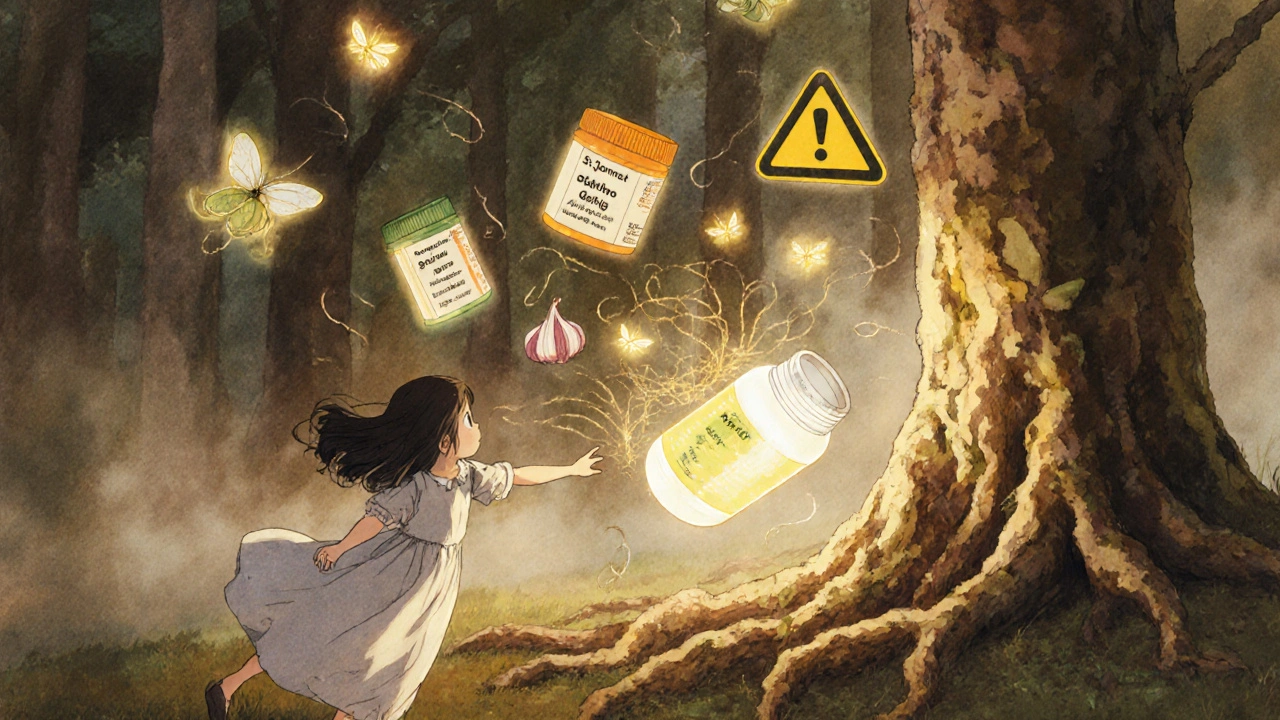

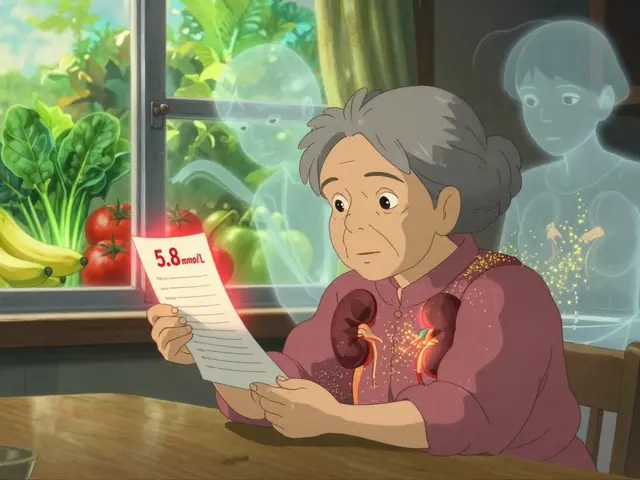
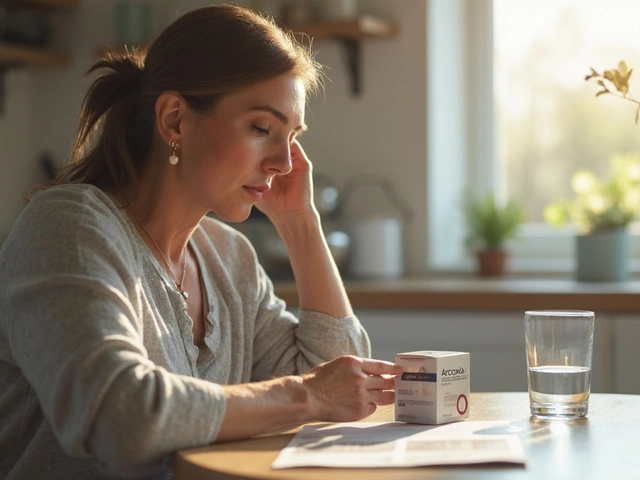
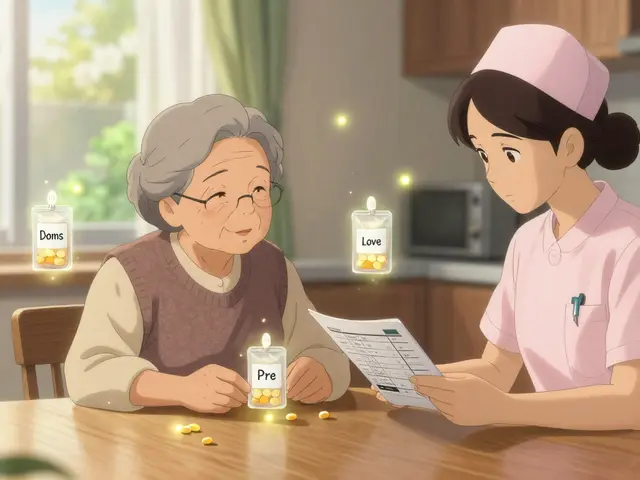
13 Comments
Sharley Agarwal-23 November 2025
Natural doesn't mean safe. Kava killed my cousin's liver. End of story.
Erika Hunt-25 November 2025
I get it - we all want to believe in the magic of nature, right? 🌿 But I’ve been taking St. John’s wort for years because my anxiety was too much for SSRIs, and I didn’t want to feel like a zombie… until my pharmacist pulled me aside and said, ‘You’re on warfarin, right?’ - and I just froze. Turns out, I was lucky. My INR went wild. I stopped it immediately. Now I only take supplements with USP labels - and I tell my doctor everything. Even the ‘harmless’ ones. Like chamomile tea. Yes, even that. It can thin blood. I didn’t know. And now I do. And I feel guilty for not asking sooner. I wish more people talked about this. Not just the hype. The real, quiet, scary stuff.
prasad gaude-25 November 2025
In India, we’ve used turmeric, ashwagandha, neem for centuries - and yet, here we are, in the age of Google and Instagram, suddenly afraid of our own wisdom? 🤔 The problem isn’t nature. It’s commodification. When a $2 bottle of ashwagandha gets sold for $40 in New York with a ‘Detox!’ sticker, and no one checks the heavy metals - that’s the crisis. Our ancestors didn’t need FDA approval. They had community knowledge. Now? We’ve outsourced trust to labels and influencers. The truth is, both systems - traditional and pharmaceutical - have flaws. But the real danger is when we stop listening to our bodies, and start listening to marketing.
Lisa Odence-27 November 2025
As a clinical pharmacologist with 18 years of experience, I must emphasize that the DSHEA loophole is not merely a regulatory gap - it is a systemic failure of public health infrastructure. The absence of pre-market safety testing for dietary supplements constitutes a violation of the precautionary principle, which underpins all modern toxicological frameworks. Furthermore, the underreporting bias is not anecdotal; it is empirically validated in multiple peer-reviewed studies, including the 2021 JAMA Network Open meta-analysis, which estimated that fewer than 1% of adverse events related to supplements are reported to the FDA. The statistical disparity between pharmaceutical and supplement adverse event reporting is not indicative of safety - it is indicative of surveillance failure. Until supplements are classified as drugs - or at minimum, subjected to mandatory post-market surveillance - we are engaging in a mass, uncontrolled experiment on the American public.
Jefriady Dahri-28 November 2025
Hey everyone - I just want to say, I used to think supplements were harmless too. Then my mom had a stroke after mixing garlic pills with her blood thinner. She didn’t even tell her doctor. 😔 Now I make sure my whole family lists every vitamin, tea, or herb they take - even the ‘just a little’ stuff. I even keep a little notebook. It’s not about fear. It’s about care. And if you’re not talking to your doctor about what you’re putting in your body, you’re not just risking your health - you’re risking your family’s peace of mind. 💪❤️
Arup Kuri-29 November 2025
The FDA is in the pocket of Big Pharma. They let supplements slide so they can push expensive drugs. You think they care about your liver? They care about profit. Kava got banned? Only after the drug companies lobbied for it. They don’t want you healing naturally. They want you hooked on pills you pay for every month. Wake up. The system is rigged.
Elise Lakey-30 November 2025
I’ve been taking magnesium for sleep for years. I never thought it could interact with my blood pressure meds… until I read this. Now I’m going to check with my doctor. I just needed someone to say it plainly. Thank you.
Timothy Sadleir- 2 December 2025
It is not merely a matter of regulation - it is a metaphysical crisis of epistemology. The modern mind has surrendered its ontological authority to the technocratic apparatus of institutional medicine, while simultaneously fetishizing the romanticized notion of the ‘natural’ as a form of spiritual purity. This cognitive dissonance is not accidental; it is manufactured. The pharmaceutical-industrial complex profits from fear, while the supplement industry profits from gullibility. Both are parasitic. The solution is not to choose one over the other - but to reclaim personal epistemic sovereignty. Question everything. Demand transparency. Do not trust labels. Do not trust influencers. Do not trust the FDA. Trust only verified, peer-reviewed, double-blind, placebo-controlled evidence - and even then, remain skeptical.
Shirou Spade- 2 December 2025
My grandfather used to chew willow bark for headaches. We called it ‘nature’s aspirin.’ He never got sick from it. Now we have a pill for everything - and half of us are on five meds. Maybe we’ve forgotten how to listen to our bodies. Not everything needs a lab. But everything needs respect.
Rachel Villegas- 2 December 2025
I just started taking vitamin D and iron. I had no idea they could interfere with antibiotics. I’m going to call my pharmacist tomorrow. Thanks for the reminder - I needed this.
Aki Jones- 3 December 2025
Let’s be real - the FDA doesn’t regulate supplements because they’re complicit. The same lobbyists who blocked the Dietary Supplement Listing Act are the ones who wrote DSHEA. And guess who owns the biggest supplement companies? Big Pharma. They sell you the ‘natural’ stuff to keep you distracted while they profit off the real drugs. It’s a two-pronged scam: make you dependent on pills, then sell you ‘natural’ alternatives to feel better about it. Wake up. This isn’t about health - it’s about control.
Roscoe Howard- 4 December 2025
It’s not about natural versus synthetic - it’s about American decadence. We want everything fast, cheap, and convenient. We want the benefits of pharmaceuticals without the discipline of medical oversight. We want the illusion of control. We buy supplements because we refuse to change our diets, sleep less, stress more - and then we blame the system when we get sick. The real danger isn’t kava. It’s our collective refusal to take responsibility.
Patricia McElhinney- 5 December 2025
Y’all are missing the point. The real issue is that the FDA is a joke. They approved a supplement last year that had 17x the labeled dose of vitamin B12 - and it caused seizures in 3 people. But guess what? They didn’t recall it. They just issued a ‘warning.’ That’s not oversight - that’s negligence. And don’t even get me started on the ‘organic’ labels - those are meaningless. The only thing that matters is third-party testing - and even then, you’re still rolling the dice. I don’t trust anything anymore. Not supplements. Not pharma. Not the government. I just take nothing. And I sleep better.